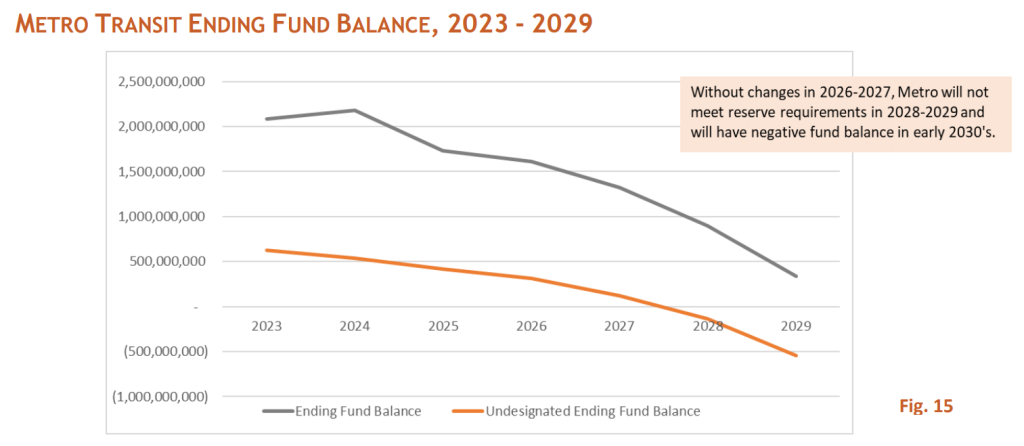King County Metro Faces Looming Fiscal Cliff
Significant financial problems at Washington state’s largest transit agency are coming to light, as the King County Council considers its priorities for the 2025 county budget. Without a major change of course, a looming fiscal cliff could significantly impact King County Metro’s ability to maintain service levels, while still achieving the County’s ambitious goal of electrifying its bus fleet by the end of this decade. That’s the conundrum laid out in County Executive Dow Constantine’s budget proposal released last month.
With Metro’s operating expenses continuing to exceed collected revenues and projected to stay that way for the foreseeable future, Metro is expected to be unable to meet its required levels of reserve funds by the 2028-2029 biennium, coming short by $500 million. By the 2030-2031 biennium, Metro could fully exhaust those reserves. The agency’s largest source of revenue, its 0.9% sales tax, has been unable to keep up with growing costs, including higher pay for staff. The agency recently approved a raise for bus operators intended to accelerate recruitment and address the agency’s labor shortage.
Meanwhile, rider fares have essentially become a footnote in the agency’s finances, projected to bring in 7.8% of its total revenue next year. Constantine has worked a fare hike of $0.25 into his budget, bringing the agency’s adult fare to $3 — as he hinted was on the horizon when he pushed for a flat $3 fare at Sound Transit. Even with the fare hike, fare revenue is trending in the wrong direction. (Youth fares would continue to be free, thanks to state Climate Commitment Act funding — though a repeal measure on the ballot could potentially force a tough decision there as well.)
Making matters worse, pandemic-era infusions of cash from the federal government are set to run their course leaving a significant revenue hole.

https://www.theurbanist.org/2024/10/10/king-county-metro-faces-looming-fiscal-cliff/
